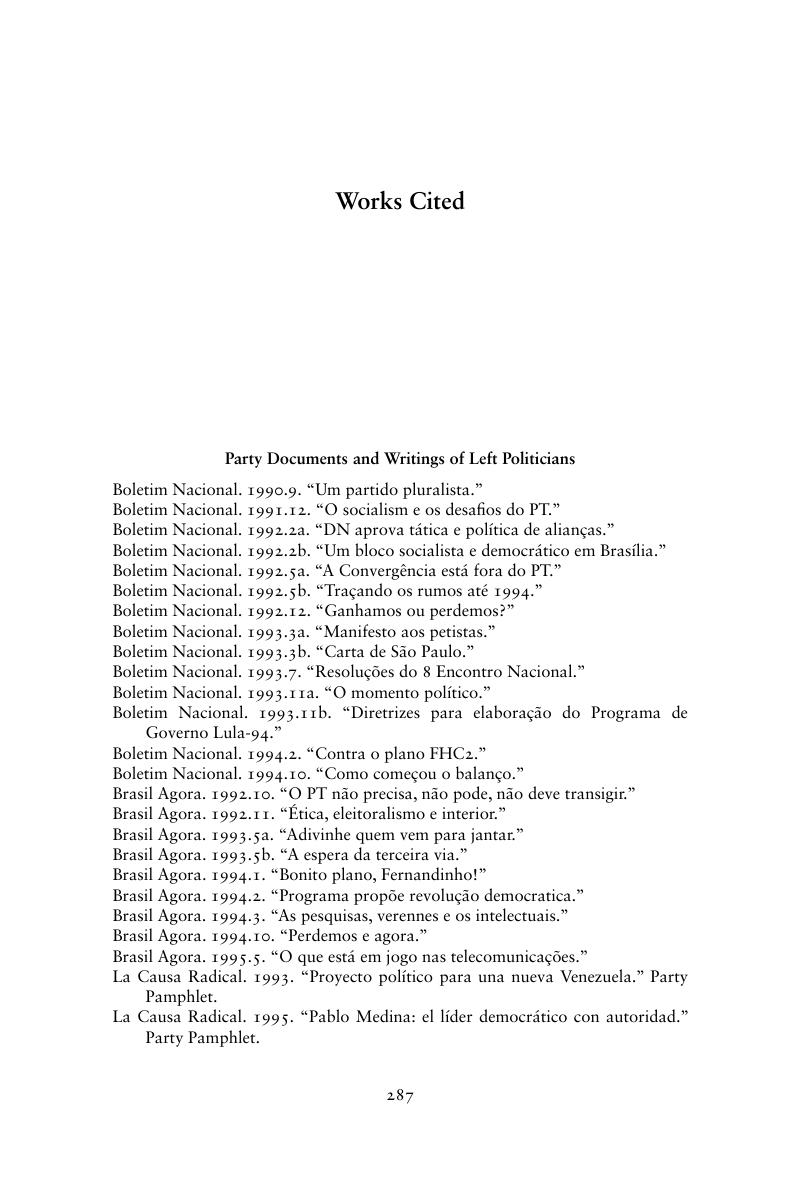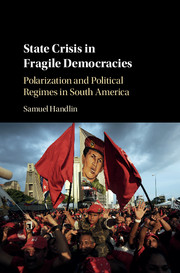Book contents
Works Cited
Published online by Cambridge University Press: 28 July 2017
Summary

- Type
- Chapter
- Information
- State Crisis in Fragile DemocraciesPolarization and Political Regimes in South America, pp. 287 - 316Publisher: Cambridge University PressPrint publication year: 2017

